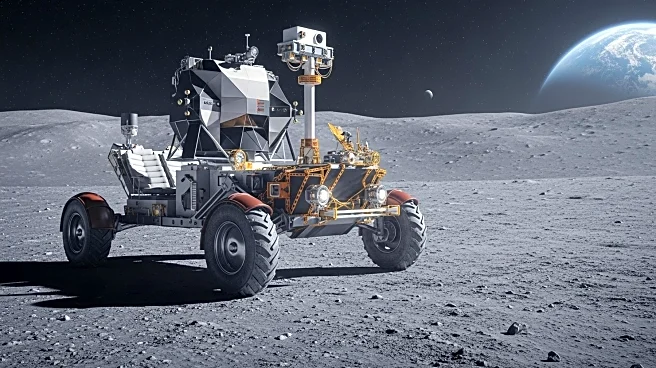What is the story about?
What's Happening?
Blue Origin has been awarded a $190 million contract by NASA to deliver the VIPER rover to the Moon's south pole by late 2027. This mission, part of NASA's Commercial Lunar Payload Services program, revives the VIPER mission which was previously stalled due to delays with a prior contractor. The VIPER rover, equipped with drills and spectrometers, aims to search for water ice in permanently shadowed lunar craters, a resource crucial for future sustainable lunar bases. This contract marks a significant milestone for Blue Origin, enhancing its role in NASA's lunar exploration plans and supporting the Artemis program by providing data on potential resources for life support and fuel.
Why It's Important?
The contract is a major boost for Blue Origin's ambitions in lunar exploration, positioning the company as a key partner in NASA's efforts to return humans to the Moon. The VIPER mission is critical for understanding the Moon's resources, which could support long-term human presence and exploration. The data collected will inform strategies for utilizing lunar ice for life support and fuel, essential for future missions. This development also highlights the growing role of private companies in space exploration, as NASA increasingly relies on commercial partners to achieve its goals.
What's Next?
The VIPER rover is expected to operate for approximately 100 days upon landing, navigating extreme cold conditions. Blue Origin's successful execution of this mission could lead to further contracts and collaborations with NASA, particularly as the agency prepares for the Artemis V mission. The mission's success will also be pivotal in determining the feasibility of using lunar resources for sustained human presence on the Moon, potentially influencing future lunar and Mars exploration strategies.
Beyond the Headlines
This contract underscores the competitive landscape of the commercial space industry, where companies like Blue Origin and SpaceX are vying for significant roles in government-led space exploration initiatives. The mission's success could set a precedent for future collaborations between NASA and private companies, potentially accelerating technological advancements and reducing costs associated with space exploration.
















